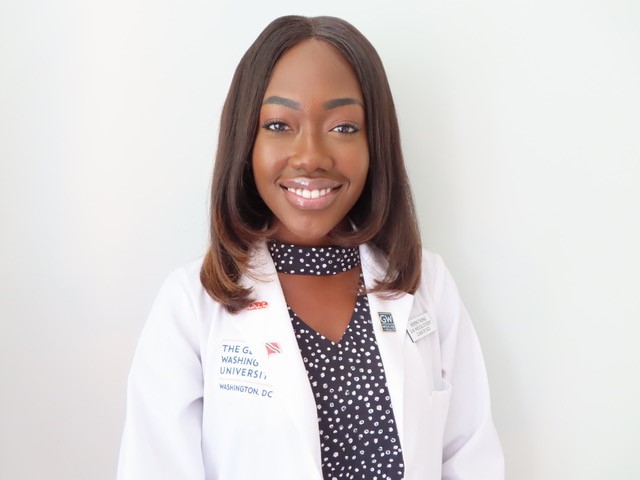
Going into medical school, I knew that treating cancer was what I was called to do. With my eyes set on oncology, I was aware that there were still options when it came to choosing a specialty. There was surgical oncology, medical oncology and radiation oncology. What road would I choose in the end? As my first year of medical school went along, our preclinical curriculum covered aspects of medical oncology, chemotherapies and surgical techniques. However, I realized I was not getting much exposure to radiation oncology, and I wanted to know more. With that and a growing love for imaging, I knew I wanted more experience in “rad onc” and decided to find out how I could secure it. With a simple internet search for summer research opportunities in radiation oncology, the ASTRO Minority Summer Fellowship (MSF) was the first result I saw. It was perfect! I reached out to my mentor, Curtiland Deville, MD, via email, scheduled a meeting with him, completed the application and ― the rest is history.
Being a recipient of the ASTRO MSF Award provided me with one of the most rewarding experiences in my medical training that I have had to date. My summer experience truly cemented my choice to pursue radiation oncology as a specialty. Throughout my summer working at the Johns Hopkins Sidney Kimmel Comprehensive Cancer Center with Dr. Deville, I was exposed to many different facets of radiation oncology. I was able to witness firsthand what goes into a complete course of treatment ― from the consultation to treatment planning, to treatment delivery. I had the opportunity to spend time with nurses, dosimetrists, physicists, therapists and physicians and see just how much each member of the team contributes to patient care. I sat in on several consultations with Dr. Deville for his prostate and sarcoma patients. I really appreciated how much patient education goes into consultations and how there is a visible alleviation in the uncertainty patients feel after having a conversation with the physician and getting a better understanding of their options.
Not only did I get to observe prostate and sarcoma consultations, but I was able to sit in on breast, lung and gynecologic consultations with other radiation oncologists in clinic. In my observation of on-treatment visits, I was able to gain more insight into the radiation-associated side effects that patients experience throughout treatment and how they are managed. Patient simulations, treatment set-up and treatment delivery were also exciting elements of my clinical exposure. Although the majority of my experience was in Washington, D.C., I did get the chance to travel to Baltimore and participate in Johns Hopkins’ Prostate Cancer Multidisciplinary Clinic. I thoroughly enjoyed that experience, as I value the shift medicine is taking toward multidisciplinary individualized care. Outside of the clinical visits and research, I had the opportunity to contour volumes for patient organs at risk and through that, gain familiarity with treatment planning systems used by the team.
Most importantly, I was able to foster a meaningful mentorship and complete significant research throughout the eight weeks of the fellowship. Dr. Deville was and continues to be an excellent mentor. I am very proud of how much I was able to learn and what we produced in the eight weeks. My poster, “Comparative in Silico Analysis of Pre-operative Scanning Beam Proton Therapy, Intensity-Modulated Photon Radiation Therapy, and 3-D Conformal Photon Radiation Therapy in Adult Soft Tissue Sarcoma,” was presented at the 2020 ASTRO Annual Meeting.
I enjoyed all aspects of the fellowship, and it confirmed my choice to pursue radiation oncology as a specialty. I extend my sincerest thanks to the ASTRO Committee on Health Equity, Diversity and Inclusion for the invaluable opportunity.
---
Share this opportunity with medical students and colleagues. See the eligibility requirements and access the application for the ASTRO 2021 Minority Summer Fellowship.
Rehema Thomas is an MD candidate in the Class of 2022 at the George Washington University School of Medicine and Health Sciences. She is a METEOR Research Fellow and president of the GW SMHS Women in Radiology.


